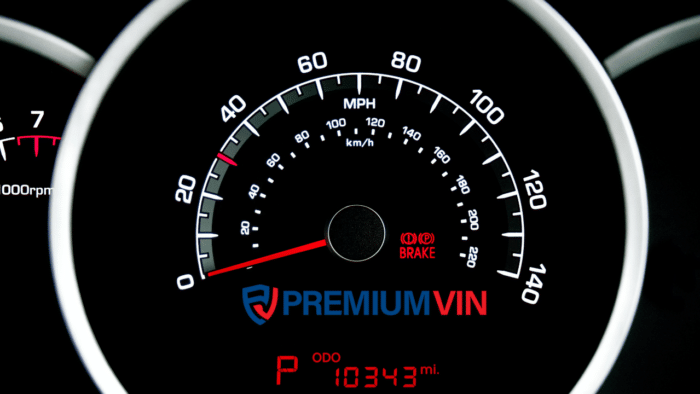Many people believe that a new car should have zero miles on its odometer upon purchase, but in reality, it’s usually not so. So, how many miles should a new car have? A new car should have no more than 200 miles. If it’s higher, you can begin to raise eyebrows and ask for a discount if you want. 200 miles seems like a lot, right? In this blog, we will learn just how many miles a new car should have and give tips on how to make the best purchases at any new or used car dealership.
READ ALSO: What is a Monroney Vehicle Window Sticker?
Learn how many miles a new car should have
Before we dive into the specifics, it’s essential to understand what we mean by a “new” car. Typically, a new car refers to a vehicle that has never been previously owned by anyone, including dealerships or rental companies. In other words, these are vehicles that have not been registered before and are usually in excellent condition, as expected. In terms of mileage, new cars should have mileage readings of 10 miles and above, especially if they’ve been used as demo cars or driven from the manufacturer to the dealership. Now, you’re beginning to see where those extra miles may come from, but just how many miles are acceptable?
Generally, a new car should have a mileage reading of less than 200 miles. We will explain further where these miles come from, but be aware that if the mileage is more than this, you have every right to make inquiries and even request a discount. Now, let’s take a look at the reasons why your new car may have up to 200 miles on it.
Why do new cars have more than zero mileage?
There are some simple reasons why a new car can have up to 200 miles on its odometer, and these reasons are:
Factory Testing
Before a car leaves the factory, manufacturers perform various tests to ensure its quality and performance. These tests include engine checks, suspension testing, and overall quality control. As a result, the car might accumulate a few miles during these rigorous tests. However, these miles are minimal and shouldn’t be a cause for concern.
Transportation
Once the car is ready for sale, it needs to be transported from the factory to the dealership. This transportation process may involve driving the vehicle or loading it onto a trailer. Again, this can result in a minimal increase in mileage, typically ranging from a few to a couple of dozen miles.
Dealer Prep
Once the car arrives at the dealership, it undergoes a series of checks and preparations known as dealer prep. This process involves inspecting the car, removing any protective covers, and ensuring it’s ready for sale. During this stage, the car may be driven to fill the gas tank, perform final inspections, or even for test drives with potential buyers.
What if the new car has more than 200 miles?
If you come across a new car with a lot more miles on the odometer, it’s essential to ask the dealership for an explanation. While there may be legitimate reasons for higher mileage, such as extended test drives or display purposes, it’s crucial to have clarity about the history and usage of the vehicle before making a purchase. Some dealers offer a 10% discount or more on vehicles with high mileage, so be patient and bold enough to speak up if you aren’t comfortable with the odometer reading of the vehicle you are interested in.
READ ALSO: How To Look Up A Trailer VIN Number
Do you have to buy a new car?
I know most new car buyers out there just want that fresh-out-of-the-factory feel and a vehicle with little to no mileage readings. However, there are some vehicles that are not particularly new but have low mileage readings that can give the same feel but come at affordable prices. We’d recommend purchasing a demo car or a used car with little mileage.
Do you have to buy a new car?
Demo cars, also known as demonstration vehicles, are vehicles that have been used by dealerships for test drives, display, or promotional purposes. They typically have low mileage and are still considered “new” because they haven’t been titled or registered to any individual owner. So, yeah, buying a demo car is a good idea, and you can even get these ones for less than a regular new model would cost.
What about used cars?
A vehicle that has been registered is considered used even though it was only used for a day or has less than 500 miles on it. Such vehicles can be purchased at a much lower price than new ones, saving you some money. However, you must remain conscious of the fact that used cars may have some wear and tear that you may need to check out with an auto mechanic before purchase. You can also utilize our VIN check tool to verify the vehicle’s condition and mileage before purchase.
To use the VIN check tool provided by PremiumVIN and verify any vehicle’s condition, simply follow these steps:
- Navigate to the VIN check page on our website
- Fill out the provided form with accurate information
- Select “Search VIN.”
You will immediately get a detailed vehicle history report showing the new car’s accurate mileage readings, service history, accident records, and more.
In conclusion, when you’re in the market for a new car, it’s reasonable to expect minimal mileage, but if it’s within the 200-mile range, it’s still good to go. Now you know just how many miles a new car should have. Remember that if you prefer to purchase a used car, you need a detailed report to verify the car’s mileage and overall condition.
Frequently Asked Questions
While a new car can have minimal mileage due to testing and preparation, it’s generally expected that a new car would not exceed a few hundred miles. Most manufacturers and dealerships strive to keep the mileage as low as possible.
In terms of kilometers, a new car should ideally have minimal mileage, with as few kilometers as possible. The mileage would generally be equivalent to the low range of miles mentioned earlier.
Deciding when to get a new car depends on various factors, including your personal preferences, the condition of your current vehicle, and your budget. There isn’t a specific mileage threshold that universally dictates when to purchase a new car. However, if your current car requires frequent, costly repairs or if you’re seeking newer features, you might consider upgrading to a new car.







